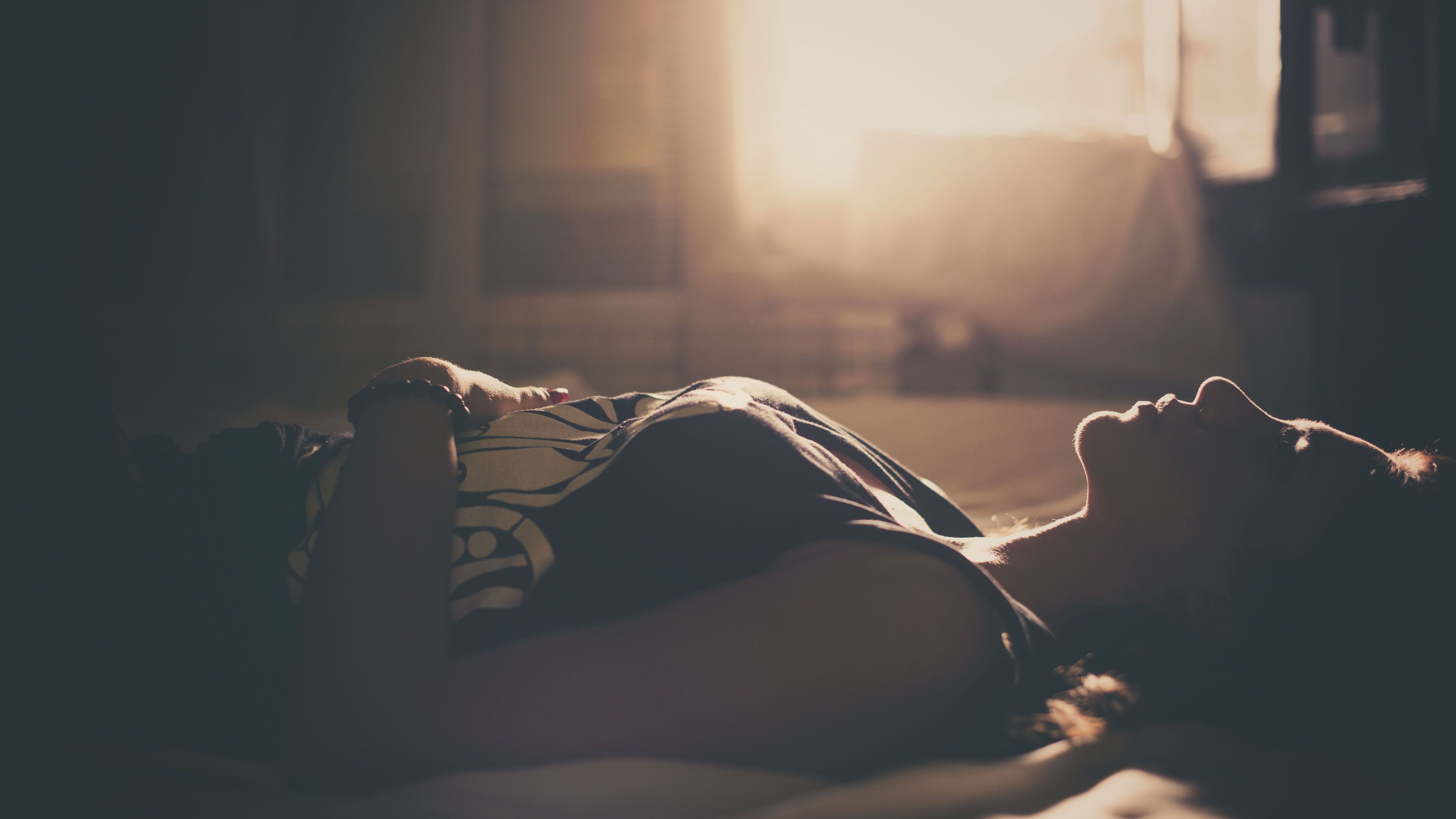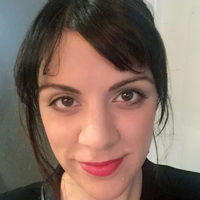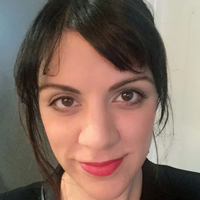My Secret Heroin Addiction Started When I Was 13 Years Old—and Took Me Down a Path I Never Expected
The Truth About My Secret Heroin Addiction

The other day, I saw a young woman seated on the sidewalk with a sign asking for money. Beside her was an empty stroller. Her body language felt familiar: She was deep in a "nod"—an opiate nod. My stomach sank. This was the nod of a heroin addict. It made me sad, a little helpless, and grateful that I was not her anymore.
I was 13 when I first tried heroin. That night, a week after my 13th birthday, I was hanging out with a 16-year-old guy who became my first boyfriend.
Although I had used prescription pills before, I had never used hard drugs or gotten drunk with any of my friends. He was dabbling in heroin, though, and when he offered it to me, I didn't hesitate. I didn't know much about the drug except that it made you numb. And, to some degree, it did.
I'd been having suicidal thoughts, and I figured maybe heroin would help push them out of my mind. It then became a weekend drug for me. I would lie and tell my mom I was going somewhere—and then I would go do heroin with him.
With each relapse, I felt like I was a jumping off a cliff, and that cliff got higher and higher each time.
I used on and off for 10 years before my family or my friends found out. In my early 20s, my heroin use escalated sharply. I was in school, working freelance as a stylist, and hiding a serious heroin habit. I was good at keeping it under wraps, I thought, because I used just enough to avoid being sick. I seemed to function well enough in my day-to-day life, and saved my heavier use for when I was alone.
Another story to read: How Meth Addiction Nearly Took My Life
But at age 23, my fiancé caught me, and the jig was up. My parents were shocked. They were supportive, but had trouble comprehending how I even got there. I entered a treatment program, went through medical detox, and then a 28-day inpatient program. I ended things with my fiancé, sparing him the long road that lay before me, knowing I had so very much to figure out. After treatment, I started attending 12-step meetings.
Get exclusive access to fashion and beauty trends, hot-off-the-press celebrity news, and more.
At first I felt relieved. It had been so difficult to get through the first 72 hours of detox, which is a seriously huge barrier for many opiate addicts who are trying to get clean.
I was sure the worst was behind me. But as horrendous as the physical detox was (I couldn't sleep for 21 days) the mental, emotional, and spiritual crisis I faced was so much worse. Fear rose to the surface and overrode every feeling and sensation: I was afraid of using again, afraid of how I could cope as a sober person—of falling back into the black hole of depression, of what people thought of me now that they knew.
In the 12-step meetings, we all sorted through the wreckage of our past and–let's be real–our present, too. But that overwhelming fear (and shame over the damage I had already done) pushed me back into relapsing several times over the following five years. With each relapse, I felt like I was a jumping off a cliff, and that cliff got higher and higher each time. Each relapse was increasingly like a game of Russian roulette; my ability to function decreased, as did my skill at concealing my addiction.
Another story to read: I Had No Idea My Husband Was a Rapist
I remember hearing someone explain gambling addiction once. They said that gambling addicts are really chasing the loss, not the win. I got that. There's an addiction to losing, to feeling that low. I never used drugs to get high–I used them to get low, to try and get beneath the feelings for which I had no coping mechanism. And finally, at 26, I had a relapse that would mark the absolute lowest point in my life. Over the course of less than four months I sank to literal and figurative places that I had not known possible.
I never used drugs to get high–I used them to get low, to try and get beneath the feelings for which I had no coping mechanism.
On Valentine's Day 2001, more than 13 years since first trying heroin as an adolescent, I sat in my car, looking at a bracelet my mother had given me that I was about to hand over to a crack dealer. My heart oozed with self-loathing. The low I had been chasing felt lower than ever before—lower than leaving my dad's house on Thanksgiving Day under the guise of going to an AA meeting to buy drugs in the projects, lower than spending Christmas Day dope-sick on my mother's couch, lower than buying drugs from my dealer's 12-year-old nephew because my dealer had been shot, lower than burning through a $15,000 check in 10 days–and then scrounging for change to buy two Big Macs for a dollar. The material losses kept mounting: I'd also pawned my computer, printer, television, DVD player, three guitars, two amps, my great-grandmother's wedding ring, countless pieces of jewelry, and, oh yeah, a Chagall painting.
But that night, in the car, something broke. The drugs that had once served a purpose–letting me get below pain, the anger, the loneliness, the frustration–just stopped working. There was no more physical pleasure, no more mental relief. Instead, the drugs made me feel crazier, leaving me with a painfully acute awareness that I had spent years trying to avoid.
Later, I stood on the roof of my building and knew I had only two choices, jump or ask for help again. I decided to ask for help.
I entered rehab for the second and last time. While it still took me some time to address my depression and childhood trauma, that choice–to live rather than die–marked the beginning of real recovery for me. In that rehab, in a serene and woodsy setting in the suburbs of Los Angeles, I physically detoxed, processed addiction and trauma in groups, and most importantly, began seeing a therapist and psychiatrist.
Another story to read: Confessions of a Sex Addict
Eighteen months later, I found out I was pregnant. Although I vacillated between ambivalence and panic throughout my pregnancy, still unsure if I would really be able to stay clean, something irreversibly shifted inside me the moment I laid eyes on my newborn son: The love I felt for him demanded that I face the mental, emotional, and spiritual crises I had been swimming in for years.
So, how did I escape all that? What got me here, rather than homeless on the sidewalk, nodding out? The simplest answer is that I've faced the things that terrified me. Time, therapy, and fundamental work on myself has made me nearly unrecognizable from that young woman standing on the roof of a building 15 years ago.
I pawned my computer, printer, television, DVD player, three guitars, two amps, my great-grandmother's wedding ring, countless pieces of jewelry, and, oh yeah, a Chagall painting.
But I can't tell my story without addressing the fact that I had access to help. In some ways, having financial resources kept me addicted longer. But, money and support also enabled me to have health insurance, the means to pay for in-patient treatment, and then access to mental health care afterwards. I have seen people get clean with no resources–on a couch, with 12-step meetings, and the sheer will to live more than they wanted to die. But for the many, many addicts that are unsure if they can do it, having access to care is imperative; it can be the difference between life and death.
According to National Institute on Drug Abuse, "in 2013, an estimated 22.7 million Americans (8.6 percent) needed treatment for a problem related to drugs or alcohol, but only about 2.5 million people (0.9 percent) received treatment at a specialty facility." Those statistics present a staggering treatment gap.
I am one of the lucky ones.
I won the lottery. And I haven't forgotten that for one day since.
More intriguing reads:
My Mother and I Share the Same Husband
How Meth Addiction Nearly Took My Life
My Cousin Went to Lunch with a Stranger—and Then She Vanished
Erin Khar lives, loves, and writes in New York City and sometimes other cities too. She was the recipient of a 2012 Eric Hoffer Editor's Choice Prize for her story, "Last House at the End of the Street," which was published in the Best New Writing 2012 anthology. Her work has appeared many places, including Sliver of Stone, Mr. Beller's Neighborhood, The Manifest-Station, The Good Men Project, Scary Mommy, Your Tango, Mind Body Green, The Fix, and as a regular contributor to Ravishly. She is currently working on her first book, a memoir.

